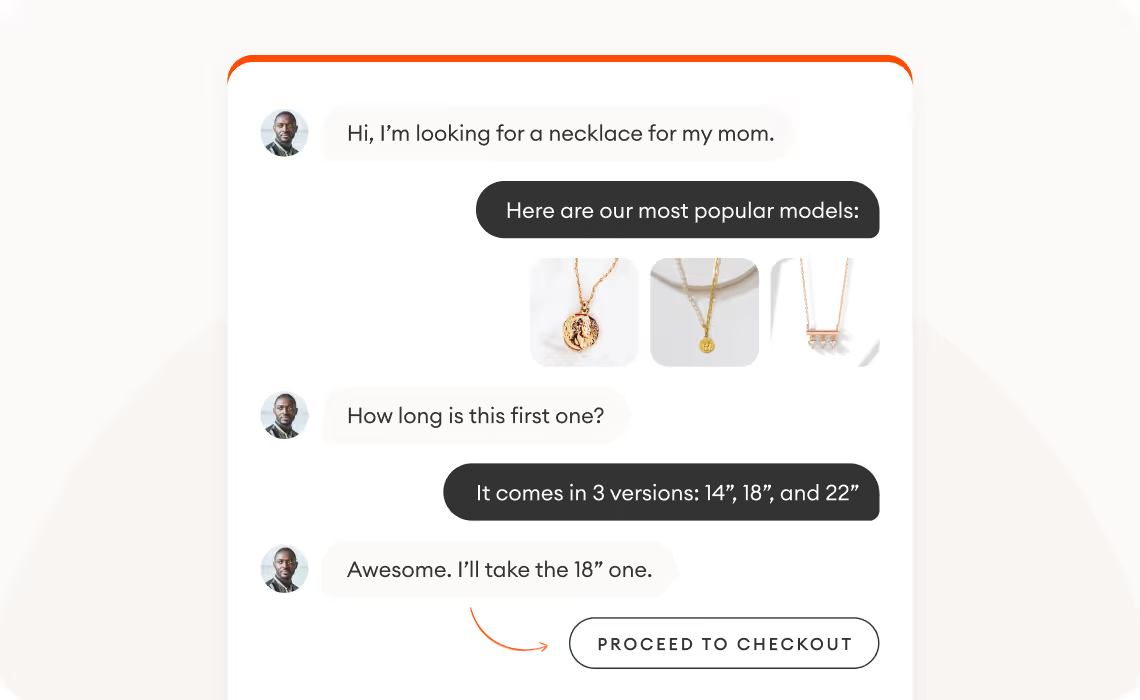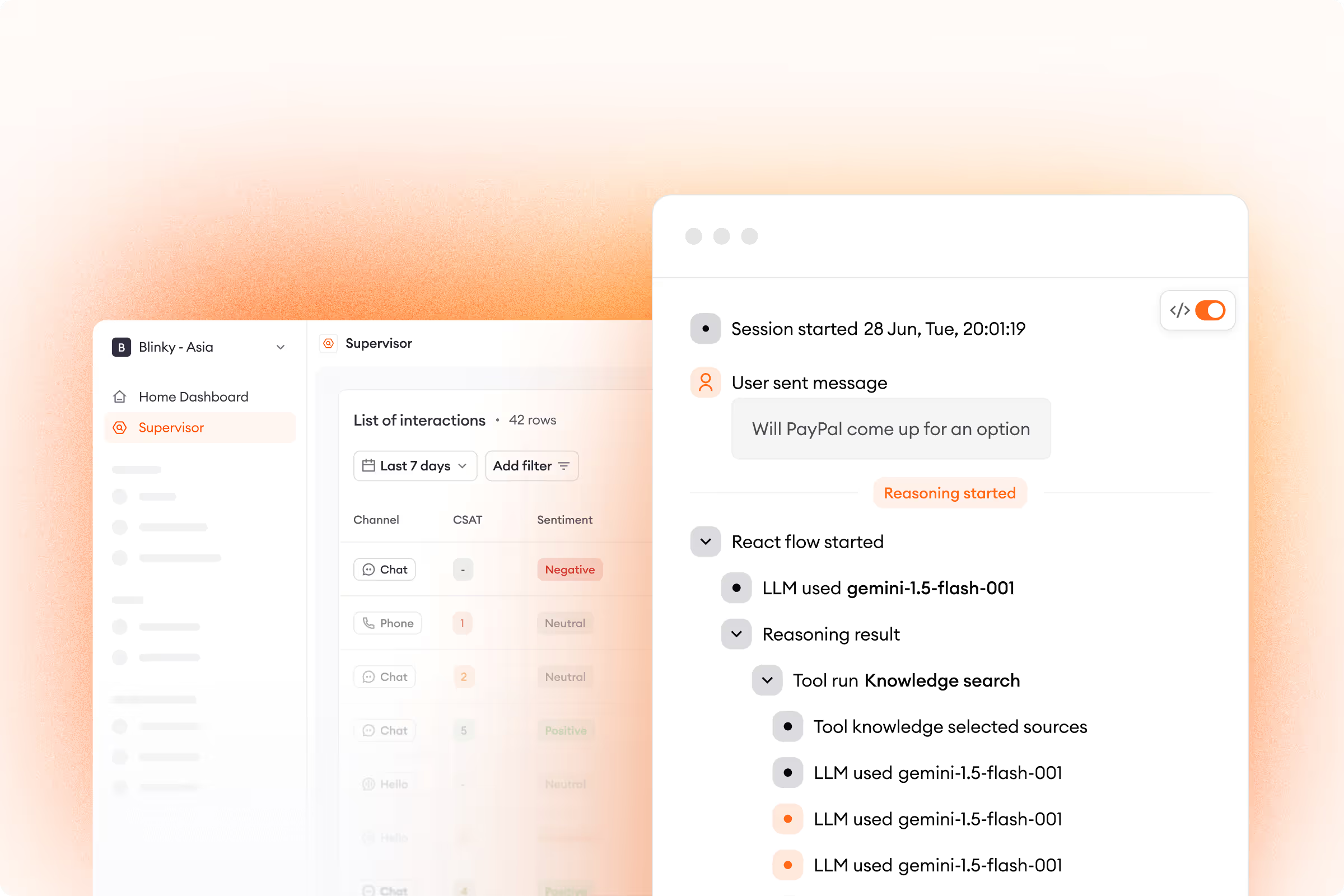Today’s online shoppers have got it made. They can buy whatever they want, at any time of day, from the comfort of their own homes. It’s no wonder ecommerce sales are expected to grow 8.8% in 2024.
For ecommerce companies, this glut of choices presents a serious challenge. New and repeat customers won’t come to you just because of your products — you’ve got to deliver an excellent experience to really stand out.
Delivering top-level online support used to be a time-consuming endeavor, but now it’s much more manageable thanks to artificial intelligence (AI). Ecommerce AI solutions are redefining what’s possible in customer service and what resources are needed for success.
And an AI chatbot makes the perfect starting point. Let’s examine what AI chatbots exactly are and how they can level up customer service for any ecommerce business.
What is an AI chatbot for ecommerce?
An AI chatbot for ecommerce is a computer program that simulates human conversation through technology that helps it understand language on its own. In customer support, chatbots act as virtual assistants that automatically.answer customer questions.
Conversational AI chatbots work thanks to powerful algorithms based on machine learning (ML) and natural language processing (NLP) technologies. They can already automate 70%+ of customer queries, and 80% of customers who communicate with an AI chatbot walk away with a positive experience.
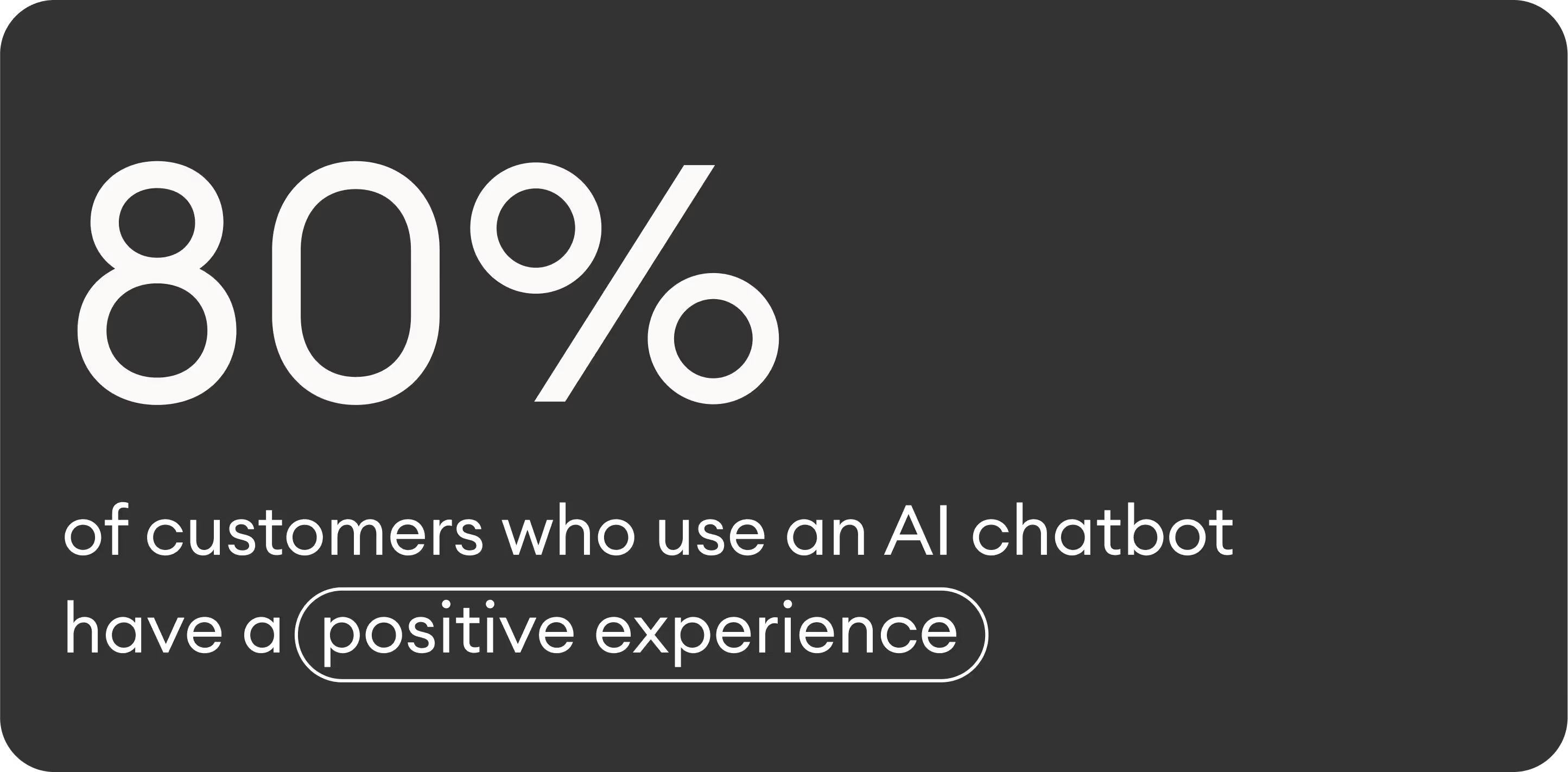
But not all ecommerce chatbots are equal. In addition to AI chatbots, there are also rule-based chatbots. These outdated bots rely on preselected keywords and a tree-like flow of questions to eventually resolve a customer ticket. This is limiting for a number of reasons:
- Getting an answer is time-consuming
- Conversations are stale and robotic
- Having typos or the wrong keywords will produce poor answers
Rule-based chatbots are no longer the standard for how people interact with virtual assistants. Generative AI programs like ChatGPT have gotten people accustomed to typing in a question — misspellings and all — and getting an answer. Rule-based bots don’t allow for this level of customer engagement.
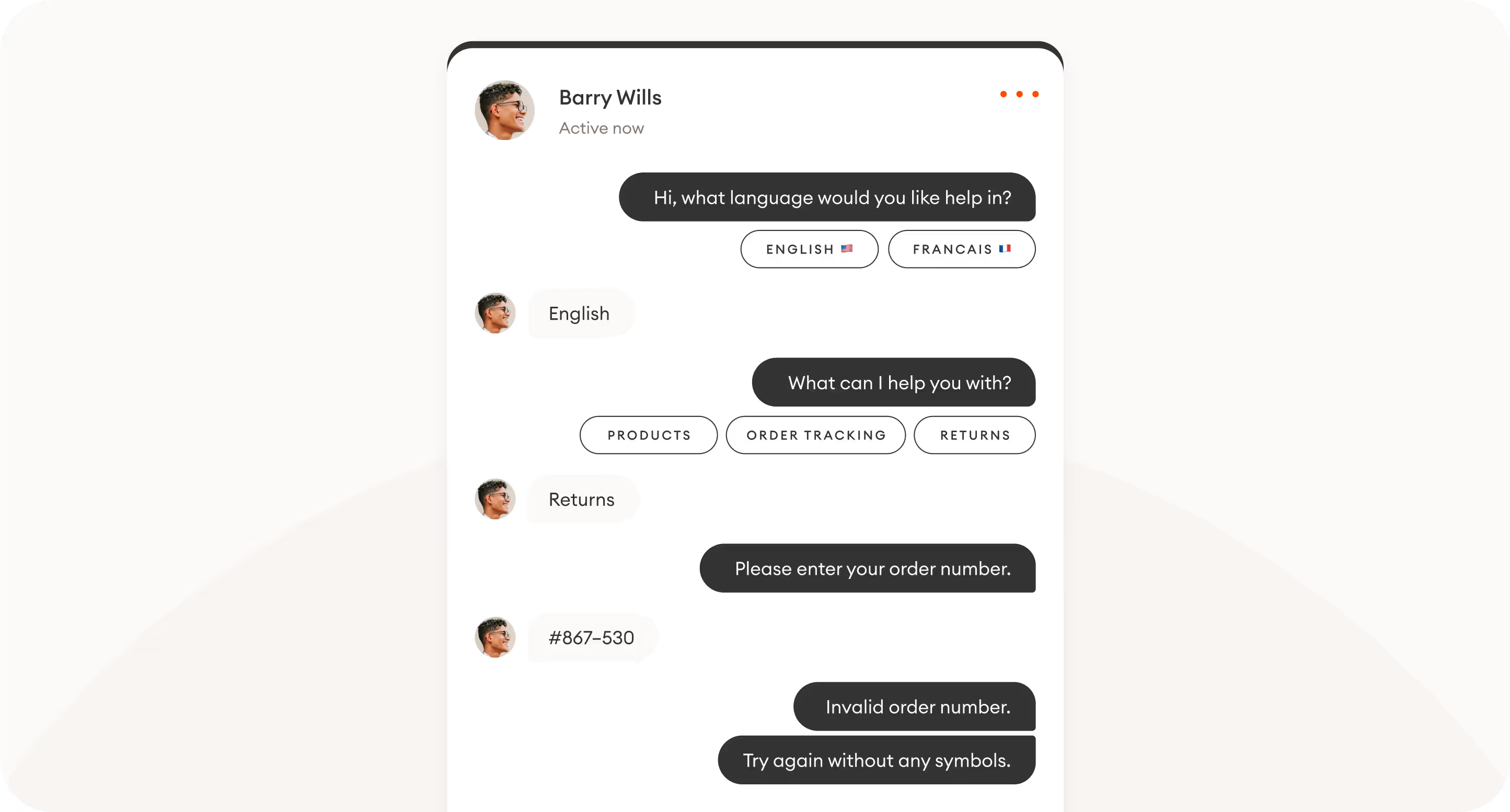
Ecommerce AI chatbot benefits and limitations
Now that we’ve established the difference between these two types, let's look at the benefits and limitations of AI chatbots:
1. Unlocked agent efficiency
Automation rates north of 70% mean customers are getting questions answered quickly and accurately, but they also unlock new possibilities for your whole customer service team. With AI chatbots handling the bulk of your ecommerce tickets, agents are free to focus on the more urgent cases that get routed to them. The most effective chatbots can save each support rep 2 hours — every single day.
2. Deeper customer relationships
By giving chat conversations a natural feel, AI chatbots make it easier to bring customers empathetic, one-of-a-kind exchanges. AI solutions can personalize their responses so each shopper feels as if they’re getting a tailor-made experience. Whenever live agent intervention is needed, the AI can deliver pre-filled templates with customer insights — name, location, purchase history, etc. — to the support team, enabling them to efficiently analyze the request and provide the appropriate information.
3. Greater scalability
In ecommerce, AI chatbots are always on. They provide 24/7 support and can handle multiple cases simultaneously. This kind of support is vital for growing businesses, which can now scale faster without new hires. Better still, AI tools let companies instantly provide multilingual support across time zones, ensuring customer support isn’t a roadblock to any growth opportunities.
4. Support-driven revenue
An AI chatbot can open a new revenue channel for businesses. Leading tools will proactively interact with customers and work to remove hurdles at key points in the customer journey and prevent cart abandoment.
For example, AI chatbots can suggest bundles based on a customer’s cart, upsell items to qualify the shopper for incentives like free shipping, or provide personalized product recommendations based on the person’s preferences and style to boost conversion rates.
5. Self-learning capabilities
AI chatbots learn as they perform, meaning they get better over time. By automatically collecting customer feedback, these tools constantly monitor the quality of each response. If customers aren’t getting helped, AI solutions notify your customer service team and recommend updated automations of their own. This’ll enable you to improve your chatbot as well as better understand the voice of the customer (VOC) and deliver key business insights.
And what about limitations? Well, some AI chatbots are certainly better than others. Poorer options fall short in their time to value and ease of use — they can take weeks to get up and running and require lots of high-level coding. That said, streamlined chatbot solutions can start automating in hours and require no coding whatsoever.
Moreover, some chatbots try to automate everything, but there will always be cases that require human oversight. AI chatbots shouldn’t replace your human agents — they ought to make them more efficient. That’s why the best tools are built specifically for the most common uses in ecommerce and know when human intervention is needed.
Ecommerce AI chatbots — best use cases
Ecommerce chatbots can be leveraged for a variety of purposes. Here are the most common examples that can immediately help brands achieve some of the benefits noted above:
1. Order tracking
Got a customer looking for their package? Not only can an AI chatbot help them locate it, but it can send them a tracking link so they can follow along in real time.
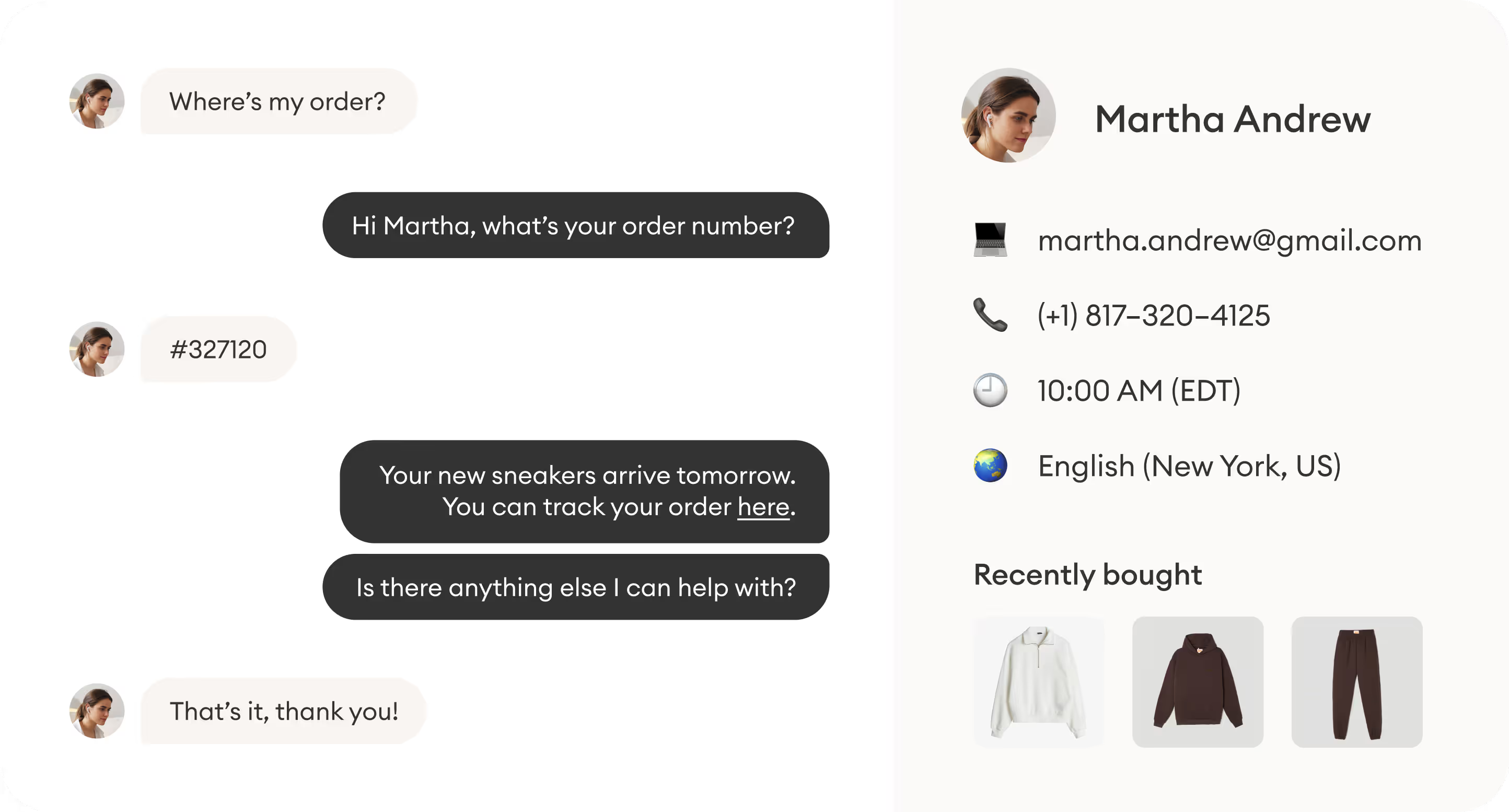
2. Product advice
AI chatbots can be trained on your product catalog, so anytime customers need help choosing the right product, they’ll be in good hands. What’s more, they can help undecided buyers find the perfect item for any occasion.
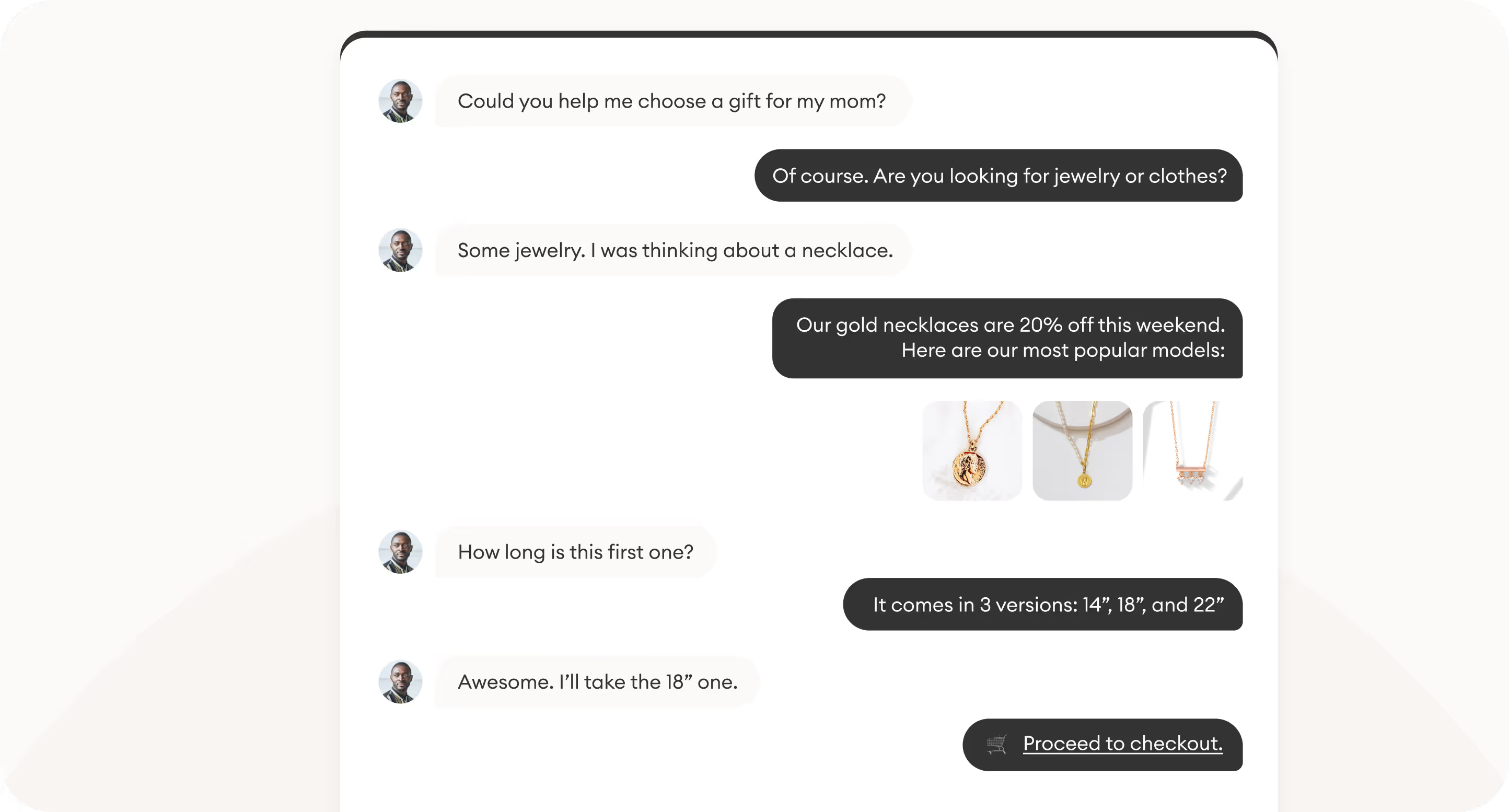
3. Help with checkout
No business wants customers to walk away just because they got discouraged during the checkout process. AI chatbots can walk customers through your website to drive sales and make the customer journey as pleasant as possible.
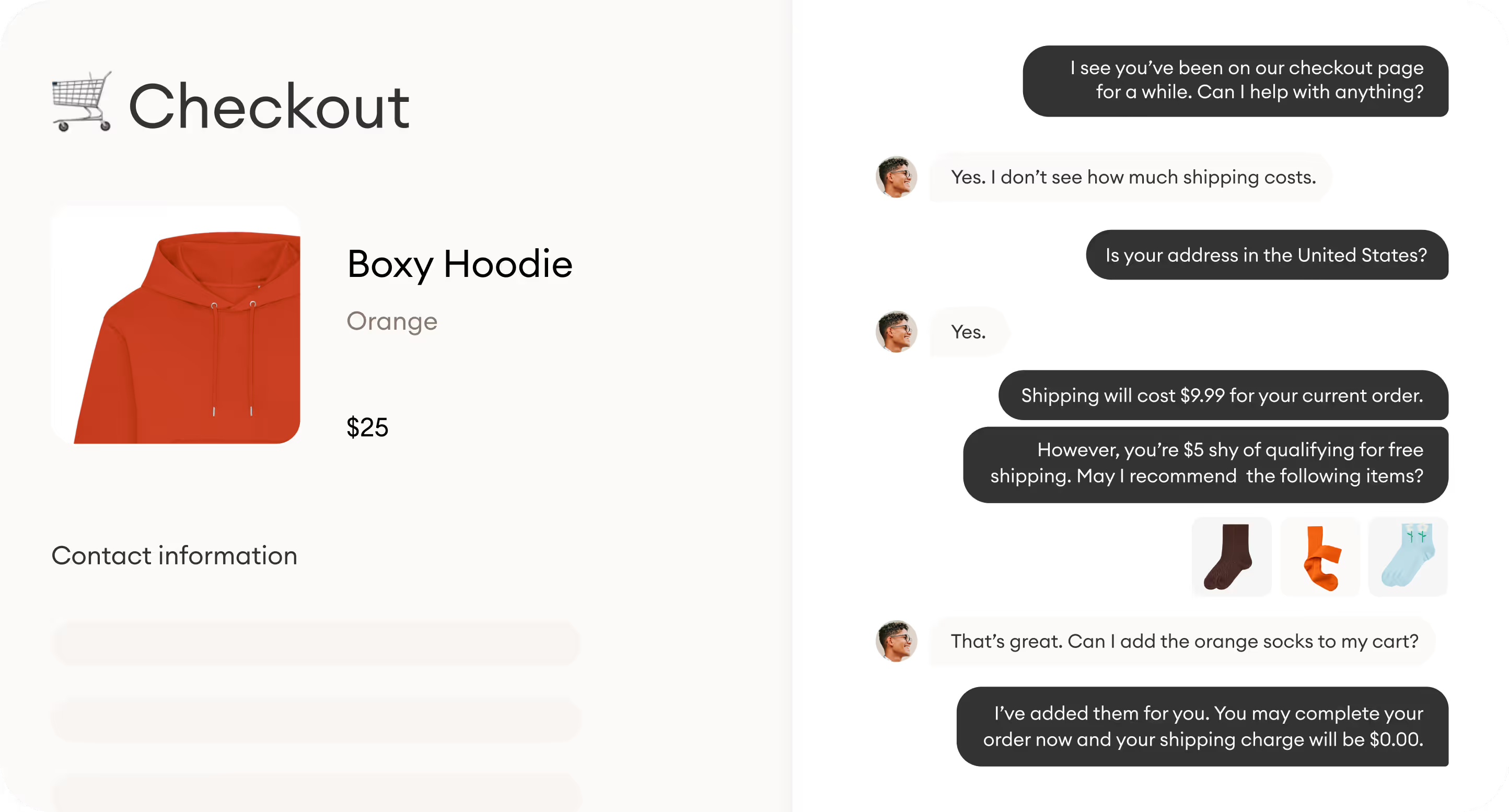
A quick aside: AI chatbots in retail
One subset of ecommerce that’s enjoying massive benefits from AI chatbots is online retailers. This is especially true given the slowing economy — economic growth is expected to stall in 2024. Using chatbots lets retail businesses recreate the in-store experience online, making customers feel as if they were physically walking through their favorite stores.
Retail chatbots are incredibly effective at improving the customer experience. One way they accomplish this is by applying a company’s unique tone and style to all responses, ensuring its brand voice shines through. Furthermore, they help businesses build truly omnichannel experiences by syncing up all support channels — email, social media, mobile apps, SMS, and more — to make online shopping as satisfying and convenient as visiting a physical store.
Finally, chatbots are instrumental in allowing retailers to handle seasonal spikes — like the holiday or summer shopping seasons — without the need to outsource or hire temporary support staff.
Learn all the ways retail chatbots are enhancing the customer experience in our Understanding Retail Chatbots blog post.
How to add an AI chatbot to your website
Setting up an AI chatbot for your ecommerce store doesn’t have to be complicated. Let us walk you through the process:
1. Onboarding and initial training
Your first step is to connect the chatbot to your existing ecommerce platforms and resources. You should be able to upload your FAQs to instantly build your knowledge base, and integrating into your tech stack is often code- and hassle-free. You just need to decide what information the chatbot should have access to.
2. Launch
Now it’s time to place your AI chatbot widget front and center on your ecommerce site. Showcase your logo, colors, and brand voice so the widget feels like a natural extension of your online store. You can expect to see your ticket backlog dramatically drop mere hours after launch.
3. Optimization
Your AI chatbot will constantly self-learn, meaning it’ll point out which automations are working and which aren’t getting the job done. It’ll even propose improved answers, helping you maximize your automation potential. What’s more, the AI chatbot can analyze incoming questions and feedback, isolate the most relevant customer chats, and provide recommendations for improvements. .
AI chatbots — an essential ecommerce asset
Modern advances have opened the doors for conversational commerce and have made AI chatbots a vital part of any ecommerce toolkit. Far superior to rule-based chatbots, AI chatbot platforms like Zowie are capable of enhancing your customer service team’s productivity and elevating the whole customer experience.

.avif)

.avif)
.svg)
